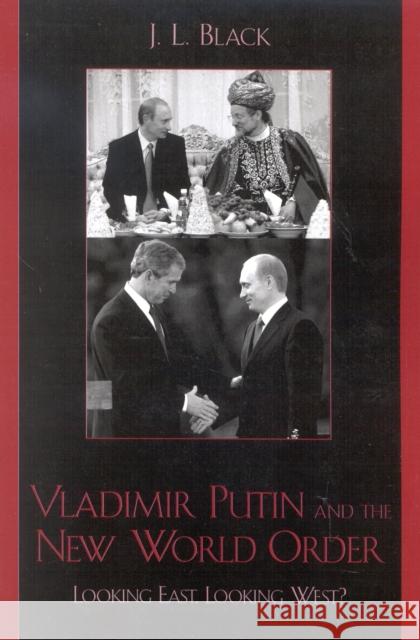Vladimir Putin and the New World Order: Looking East, Looking West? » książka
Vladimir Putin and the New World Order: Looking East, Looking West?
ISBN-13: 9780742529656 / Angielski / Twarda / 2004 / 382 str.
Vladimir Putin and the New World Order: Looking East, Looking West?
ISBN-13: 9780742529656 / Angielski / Twarda / 2004 / 382 str.
(netto: 633,83 VAT: 5%)
Najniższa cena z 30 dni: 661,43
ok. 30 dni roboczych
Dostawa w 2026 r.
Darmowa dostawa!
J. L. Black's latest work is a rich and carefully crafted attempt to expose the textures of Russia's perceptions of itself and its place in the world. Based almost entirely on Russian sources, J. L. Black found himself returning to the old practice of citing and decoding feature items from the Russian press. The difference between then and now, of course, is that at that time there was the struggle to read between the lines while now he reads and tries to digest the lines themselves-the Russian press still provides a very good indication of prevailing moods within the political and military elite establishments of Moscow. It is also still evident that if we are to understand Russian foreign policy-making, we must attempt to view international situations through the prism of Russian analysts and officials. Only then can we draw conclusions based on both our and their perceptions of current events and visions for the future. Vladimir Putin and the New World Order is divided into two parts. The first is a chronologically organized story of Putin's efforts to find a niche for Russia in the world since his sudden appointment as acting president at the end of December 1999. Throughout, Black places great emphasis on the sequence of events to illustrate important patterns; for example, Putin's tendency to make dramatic overtures to the East as preparation for negotiations with the West. The book's second part focuses on Russia's attention to specific regions of the world and types of international activity. These include individual countries, such as China and Ukraine; regions like Central Asia and the Caucasus; integrative agencies, including the CIS; concepts and practices, among them matters of security and military reform; and the ambivalent Russian associations with so-called "rogue" states.











